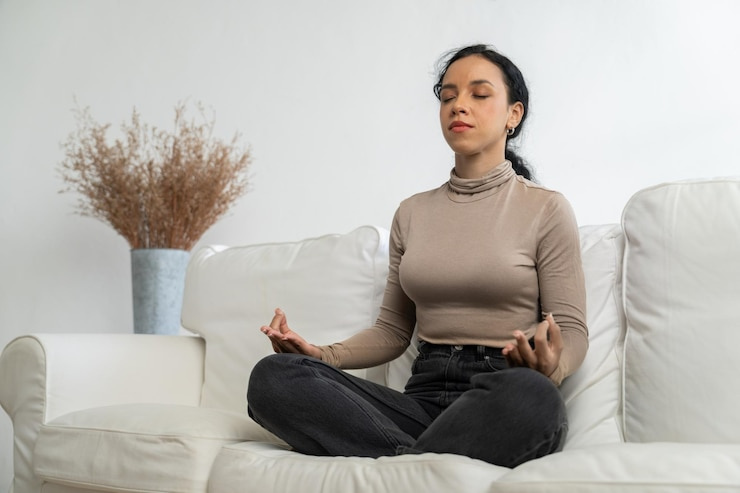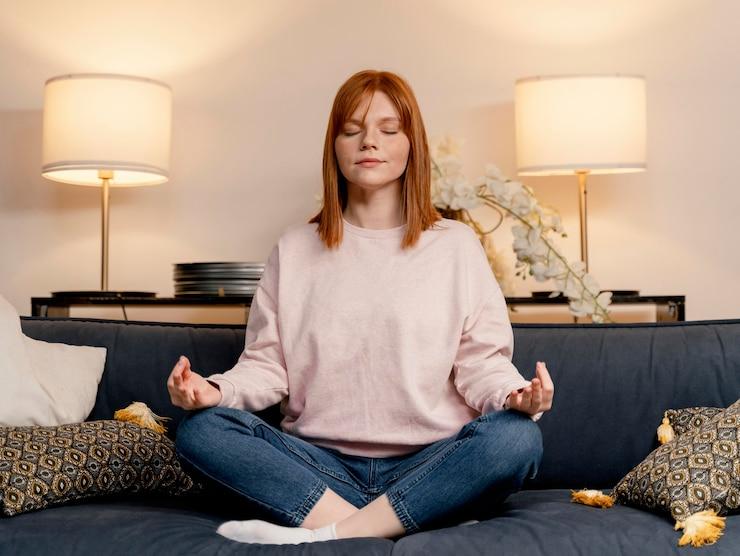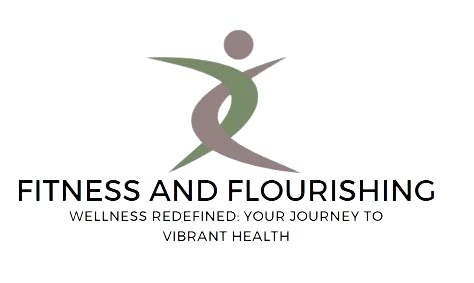Are you feeling overwhelmed? Managing stress is a crucial skill for anyone navigating the complexities of modern life. While stress can feel all-consuming, there are powerful techniques that can help you regain control and cultivate inner peace. In this blog post, we’ll explore a range of mind-body practices that can effectively empower you to reduce stress and anxiety and inducing overall well-being.
Effects of Stress and Anxiety
Stress and anxiety are often used interchangeably, they can have distinct effects on our well-being. Stress is usually triggered by a specific event, like a looming deadline or work presentation, and can cause symptoms like headaches and stomachaches. Anxiety, on the other hand, is a more general feeling of unease or worry that can linger even in the absence of an immediate threat. Both can disrupt sleep, concentration and our ability to manage daily tasks. Left unchecked, chronic stress and anxiety can even increase the risk of developing other health problems.
- Headache
Stress and headaches are often unwelcome companions. When deadlines loom or worries pile up, throbbing pain can settle in your head, making it difficult to focus or function. This is because stress triggers the body’s fight-or-flight response, tightening muscles in the scalp and neck, that can guide to a dull ache or a sharp, throbbing pain. Chronic stress can also contribute to headaches by disrupting sleep patterns and increasing pain sensitivity.

- Muscle tension
Ever feel like you’re carrying the world’s weight on your shoulders? That tightness might not just be metaphorical. Stress has a powerful connection to muscle tension. When we are stressed, our body enters into “fight-or-flight” mode, preparing to handle a perceived threat. This causes the nervous system to give hormones that cause muscles to tense up. This tension can linger long after the stressor has passed, leading to aches, pains, and headaches.

- Rapid heartbeat
When stress hits, your heart might feel like doing a drum solo in your chest. This isn’t just your imagination! Stress promotes the release of hormones like adrenaline and cortisol, which prime your body for action. These hormones increase your heart rate and blood pressure, putting your body on high alert. It’s a leftover reflex from our ancestors who needed a quick burst of energy to face immediate threats. However, in our modern world filled with chronic stressors, this constant state of arousal can take a toll on our cardiovascular health.

- Difficult sleeping
Stress can wreak havoc on your sleep, turning your sanctuary into a battleground. When faced with worries and anxieties, our bodies struggle to wind down. Stress hormones like cortisol surge to keep the brain alert, making it difficult to quiet racing thoughts. It can direct to difficulty falling asleep, restless nights with frequent awakenings, and never being well-rested. The lack of quality sleep fuels a vicious cycle, increasing stress levels and making it even harder to get the shut-eye you desperately need.

- Can stress cause constipation
Can stress cause constipation? Absolutely! When we’re under pressure, our bodies go into fight-or-flight mode, prioritizing immediate threats over digestion. This diverts blood flow away from the gut, slowing food movement and making stool hard and difficult to pass. Can stress cause constipation even further? It can! Chronic stress can also disturb the delicate balance of bacteria in your gut, known as the microbiome. This imbalance can worsen constipation and contribute to bloating. So, if you’re finding yourself stressed and struggling with infrequent bowel movements, stress could be playing a major role.

Discover the secret to a calmer, more centered you. Try Rhodiola rosea and experience stress relief naturally.
meditation for stress and anxiety
In the fight against stress and anxiety, meditation can be a powerful weapon. This practice involves focusing your attention and quieting the mind, creating a sense of calm amidst the daily storm. By focusing on your breath, you can become more aware of the present moment and detach from worries that cloud your mind. Meditation can also help loosen the grip of physical tension, a common side effect of stress. With regular practice, meditation can become a valuable tool for managing stress and anxiety, promoting inner peace and emotional well-being.
Techniques for Managing Stress and Anxiety
1. Get more physical activity
Your body might be craving some movement! Physical activity is a fantastic stress and anxiety buster. When you get your heart rate up and your blood pumping, your body releases endorphins, those feel-good chemicals with natural mood-boosting properties. Exercise also helps burn off stress hormones like cortisol, making you feel calmer and more relaxed. It doesn’t have to be an intense gym session – a brisk walk, a dance party in your living room, or a yoga class can all be effective ways to combat stress and anxiety. So lace up your shoes, hit the way, or find an activity you enjoy – your mind and body will thank you.

2. Eat a balanced diet
What you eat can obviously impact how you handle stress and anxiety. A balanced diet of whole foods acts like internal armor against these unwanted emotions. These foods provide essential nutrients that support the nervous system’s function, making it more resilient in the face of stress. Complex carbohydrates from whole grains offer sustained energy, preventing dips that can contribute to irritability. Fruits and vegetables are rich in antioxidants that combat inflammation, a factor linked to anxiety. Lean protein sources like fish and chicken provide amino acids, the building blocks for neurotransmitters that regulate mood. By nourishing your body with a balanced diet, you’re giving yourself a fighting chance to manage stress and anxiety more effectively.

3. Minimize phone use and screen time
Our constantly buzzing phones and tablets, while convenient, can be major contributors to stress and anxiety. The constant influx of notifications, news updates, and social media feeds can leave us feeling overwhelmed and bombarded. The blue light coming from screens can disrupt sleep patterns, further exacerbating stress. Minimizing phone use and screen time allows us to disconnect from the digital world and reconnect with ourselves. This creates space for relaxation, will enable us to process emotions more effectively, and promotes better sleep quality. Setting boundaries around screen time can create a calmer and more mindful environment, ultimately reducing stress and anxiety.

4. Practice self care
In the daily hustle, it’s easy to neglect self-care, but prioritizing it is crucial for managing stress and anxiety. Self-care isn’t selfish; it’s about giving your mind and body the tools to cope. This can involve enjoyable activities, like reading a note, having a warm bath, or enjoying time in nature. It can also encompass healthy habits like getting good sleep, eating healthy meals, and dwelling hydrated. Incorporating these practices into your routine builds resilience against stress and anxiety. Self-care allows you to recharge and return to your day feeling calmer, more focused, and better equipped to handle whatever challenges arise.

5. Stress ball
Look no further than the humble stress ball for a quick and portable stress reliever. These squeezable toys provide a satisfying outlet for pent-up tension. The act of repeatedly squeezing and releasing the ball engages your hand and forearm muscles, promoting relaxation throughout your body. This physical release can be calming, similar to deep breathing exercises. Additionally, the tactile sensation of the stress ball can act as a distraction, taking your mind off worries and anxieties for a moment. While not a cure-all, stress balls offer a convenient and easy-to-use tool to manage stress and find pockets of calm throughout the day.

6. Try journaling
Are you struggling to keep your worries at bay? Putting pen to paper can be just what you require. Journaling can be a strong tool for managing stress and anxiety. You can gain clarity and perspective on what’s troubling you by expressing your thoughts and feelings on paper. Journaling allows you to unload anxieties swirling in your mind, creating a sense of release and emotional catharsis. This process can also help you identify patterns in your stressors and develop coping mechanisms to address them more effectively. Whether you free-write stream-of-consciousness style or use journaling prompts to explore specific anxieties, this simple practice can be a valuable weapon in your stress-fighting arsenal.

7. Low stress jobs
Are you feeling burnt out and overwhelmed? Consider exploring low-stress jobs as a way to manage chronic stress and anxiety. Low stress jobs typically offer predictable schedules, minimal pressure, and a clear separation between work and personal life. This can be a game-changer for those struggling with anxiety, as it allows for more control over their workload and promotes a better work-life balance. Low stress jobs include librarian roles, where you can curate collections and assist patrons in a calm environment. Data entry positions offer routine tasks and minimal interaction, making them ideal for those who prefer a structured and predictable workday. For those who enjoy working with nature, groundskeeper or gardener roles provide opportunities to be outdoors and engage in physical activity, which can significantly reduce stress and anxiety. By exploring low-stress job options, you can prioritize your mental well-being and create a work environment that fosters calmness and reduces the burden of stress and anxiety.

8. Reduce your caffeine intake
While that morning cup of coffee might jumpstart your day, be mindful – excessive caffeine intake can worsen stress and anxiety. Caffeine is a stimulant that acts on your nervous system, mimicking the body’s fight-or-flight response. This can intensify feelings of anxiousness, jitters, and even heart palpitations. Reducing caffeine intake, particularly later in the day, can help relieve your nervous system and promote better sleep. Opt for herbal teas or water, and gradually cut back on coffee, soda, and energy drinks. You might be surprised at how much calmer you feel with less caffeine.

9. Memes about stress
Sometimes, a good laugh is the best medicine, even for stress and anxiety. Enter the world of stress memes! These relatable online jokes can provide a sense of camaraderie and understanding. Seeing others poke fun at the absurdity of stressful situations can be strangely calming. They can also offer a fresh perspective, reminding you you’re not alone in facing these challenges. Plus, a good chuckle can trigger the release of endorphins, those feel-good chemicals that can naturally elevate your mood and reduce stress hormones. So next time you’re feeling the pressure, don’t be afraid to browse some stress memes – you might find the virtual support and laughter you need to manage your anxiety and navigate life’s challenges a little lighter.

10. Spend time with friends and family
Remember to underestimate the power of strong social connections. Spending time with loved ones can be a fantastic stress reliever. Laughter, shared experiences, and simply feeling heard by supportive friends and family can create a sense of ease and belonging. These positive interactions can help buffer the negative effects of stress hormones and boost your mood. Whether it’s catching up with a close friend, having a game night with family, or joining a social group that shares your interests, prioritizing social relations can be a magic tool for managing stress and anxiety, reminding you that you have a supportive network to lean on during challenging times.

11. Create boundaries and learn to say no
It might be time to establish healthy boundaries and master saying “no.” Constantly taking on more than you can handle is a recipe for stress and anxiety. Setting boundaries allows you to distinguish between your time and commitments clearly. This means politely declining requests that overburden you or infringe on your self-care. By saying “no” to additional obligations, you’re essentially saying “yes” to your well-being. This allows you to concentrate on what truly matters and reduces the feeling of being pulled in too many directions. Remember, boundaries aren’t about being selfish; they’re about creating a sustainable and balanced life, ultimately reducing stress and anxiety and allowing you to show up more fully for yourself and the people who matter most.

12. Avoid procrastination
Procrastination may be like a temporary escape from stress, but it often backfires, leading to a bigger mess of anxiety later. When you put things off, they pile up, creating a looming sense of overwhelm. This can trigger the fight-or-flight response, flooding your body with stress hormones. Avoiding procrastination is key to managing stress and anxiety. You feel a sense of accomplishment and control by tackling tasks head-on and breaking them down into smaller, manageable steps. This reduces the burden of looming deadlines and fosters a sense of calm. So, resist the urge to put things off – taking action, even on small tasks, can significantly reduce stress and anxiety in the long run.

13. Take a yoga class
Unroll your mat and explore the world of yoga! This mind-body practice is a powerful tool for reducing stress and anxiety. Yoga combines physical postures, breathing exercises, and meditation, creating a holistic approach to well-being. The physical movements help to stretch and strengthen your body, releasing tension and promoting relaxation. Focused breathing exercises calm the nervous system and quiet the mind, while meditation allows you to cultivate inner peace and detach from worries. Regular yoga practice can significantly reduce stress hormones, leaving you feeling calmer, more centered, and better equipped to manage life’s challenges.

14. Practice mindfulness
In the endless hustle of daily life, it’s easy to get distracted by fear, worries and anxieties. Here’s where mindfulness comes in – a powerful tool for managing stress and anxiety before they take hold. Mindfulness is the practice of paying attention to the present moment without judgment. By focusing on your healthy and easy breath, bodily sensations, or surrounding sounds, you train your mind to be less reactive to stressors. This allows you to observe your thoughts and emotions without getting caught up. With regular practice, mindfulness can become a shield against stress and anxiety. It equips you to navigate challenging situations more calmly and clearly, promoting your overall well-being and emotional resilience.

15. Cuddle
Consider cuddling up with a loved one for a natural stress and anxiety antidote. Cuddling easily promotes the release of oxytocin, a hormone nicknamed the “cuddle hormone” for a reason. Oxytocin promotes feelings of love, trust, and attachment, creating a sense of calm and security. It also helps lower cortisol, the stress hormone, making you feel more relaxed and at ease. The physical closeness of cuddling provides a sense of comfort and support, further reducing tension and promoting feelings of well-being. So next time you’re feeling overwhelmed, cuddle up with a partner, pet, or even a loved one’s sweater – the simple act of physical closeness can go a long way in reducing stress and anxiety.

16. Spend time in nature
Take a break and immerse yourself in nature! Spending time outdoors can be a powerful antidote to stress and anxiety. Surrounding yourself with trees, greenery, and the sights and sounds of nature has a calming effect on the nervous system. Studies have shown that exposure to nature can lower stress hormones, reduce blood pressure, and improve mood. Whether it’s a walk in the park, a hike in the jungle, or simply sitting in your backyard, nature provides a space to disconnect from technology and reconnect with yourself. Immersing yourself in the beauty of the natural world can promote feelings of peace, gratitude, and perspective, helping you holistically manage stress and anxiety.

17. Practice deep breathing
Take a deep breath, and another! Deep breathing exercises are a simple yet magical tool for managing stress and anxiety. When we’re stressed, our breath becomes shallow and rapid. Deep breathing, however, activates the body’s relaxation response. By consciously slowing down your breath, focusing on inhaling through your nose, and slowly through your mouth, you signal to your body to calm down. This can lower your heart rate, reduce blood pressure, and quiet the fight-or-flight response. Deep breathing exercises are a sharp and healthy way to manage stress and anxiety in the moment. With regular practice, they can become a cornerstone of your stress management toolkit.

18. Spend time with a pet
Your furry (or feathery) friend might be the perfect stress reliever. Spending time with a pet can be a powerful tool for managing stress and anxiety. Adopting a dog or cat as a pet can lower your blood pressure and heart rate, promoting a sense of calm. Animals offer unconditional love and acceptance, providing comfort and security that can ease worries and anxieties. The duty of caring for a pet can also be a grounding force, encouraging routine and taking your mind off daily stressors. Whether it’s a playful walk with your dog, a cuddle session with your cat, or simply their quiet presence, pets can significantly reduce stress and anxiety, promoting feelings of well-being and emotional connection.

19. Consider Supplements
While not a cure-all, certain supplements may offer some support in managing stress and anxiety. These can work alongside other stress-reduction techniques to create a well-rounded approach. Some research suggests that herbal remedies like Ashwagandha and L-theanine may help regulate stress hormones and promote relaxation. Omega-3 fatty acids have also been found to improve mood and reduce anxiety symptoms. However, it’s important to remember that supplements can work with medications and may not be good for everyone. Talking to a professional doctor before starting any supplements is crucial to ensuring they are safe and appropriate for your needs.

The bottom line
Daily life will inevitably throw some stress our way; it’s the chronic kind that wreaks havoc on our health. The good news is there are powerful tools to combat it and boost our overall well-being. Science-backed strategies like exercise, mindfulness practices, spending quality time with furry (or feathery) friends, setting boundaries with screen time, and simply getting some fresh air can all be effective weapons in our stress-fighting arsenal. By getting these practices into our routines, we can cultivate a calmer and more resilient inner state, ready to tackle life’s challenges with greater ease.


